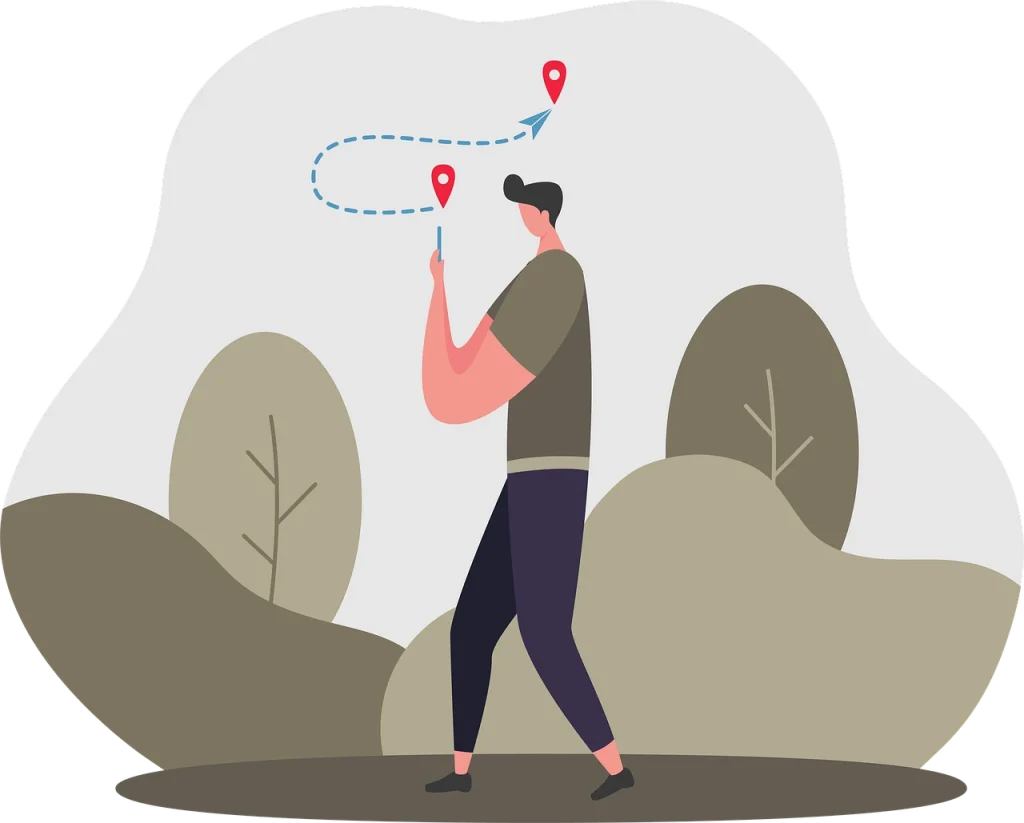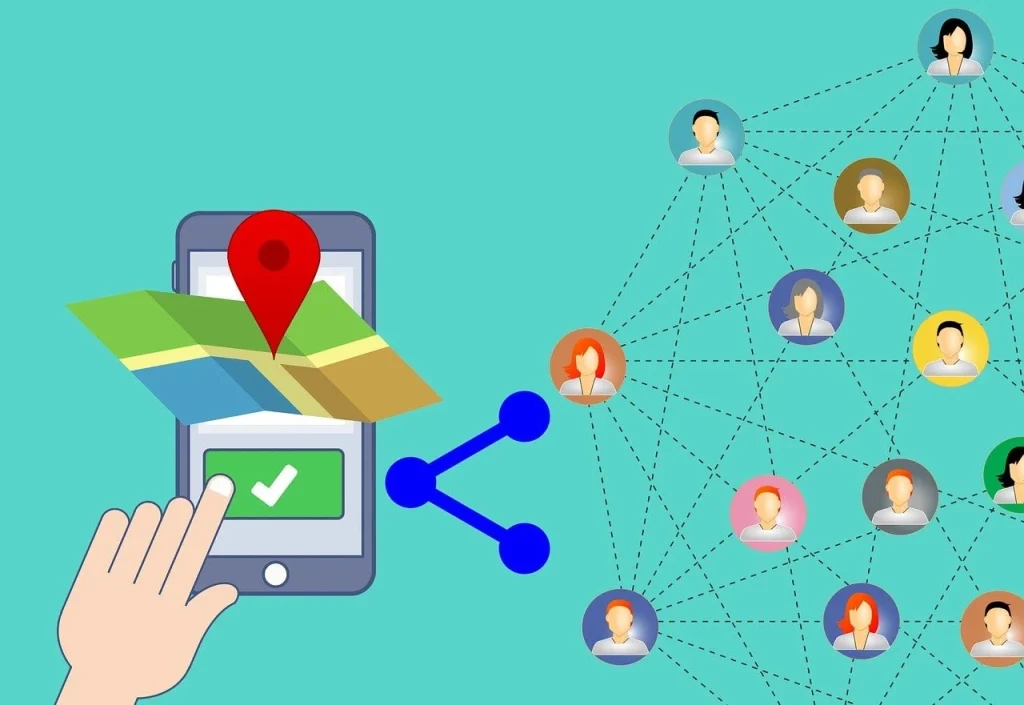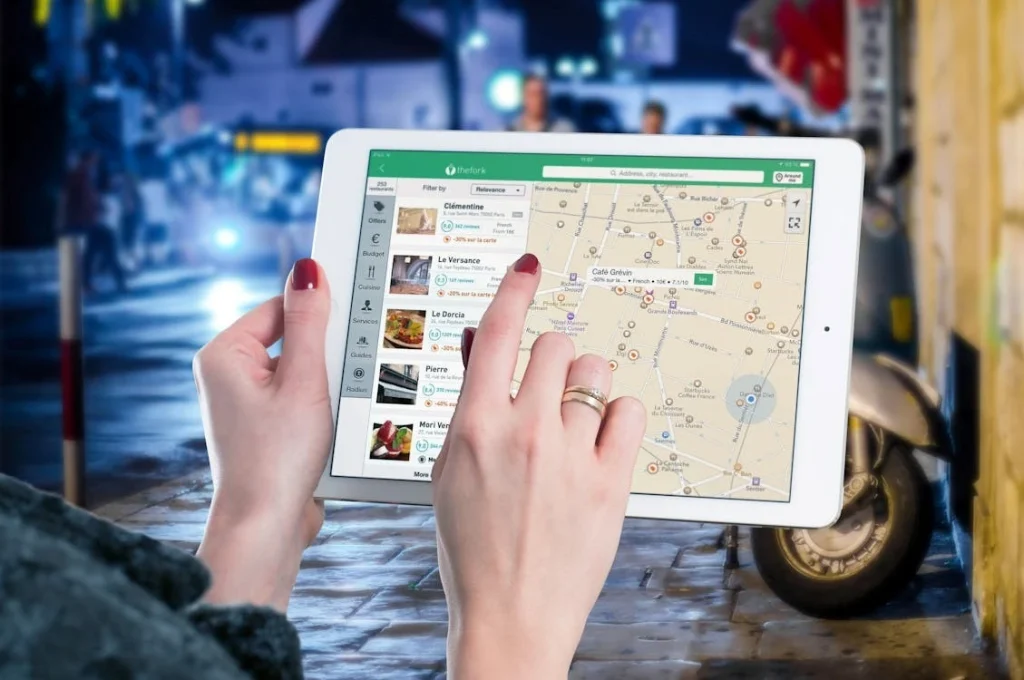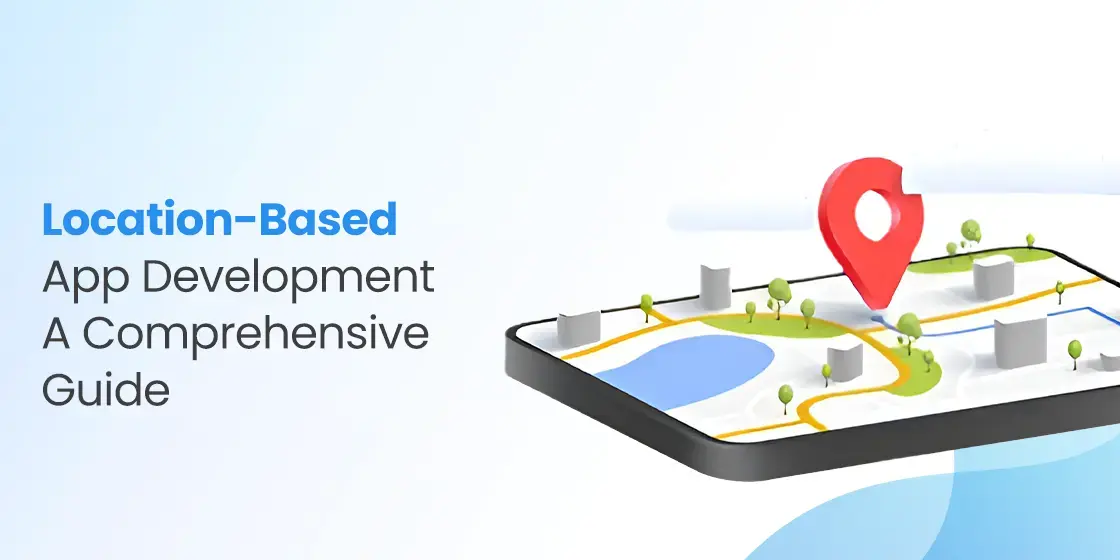Table of Content
Discover the Detailed Development Process of Location-Based Apps in 2025
The rise of smartphones has ushered in an era of unprecedented location awareness, transforming how we interact with the world around us. Location-based services (LBS) have become ubiquitous these days, seamlessly integrated into our daily lives. From finding the nearest coffee shop to navigating unfamiliar cities, these apps have revolutionized how we explore, connect, and experience the world.
The development of location-based apps, therefore, has emerged as a dynamic and rapidly evolving field. These applications leverage a device’s inbuilt GPS, Wi-Fi, and cellular signals to determine its location quite accurately, and provide location-specific services. This technology has the potential to revolutionize various sectors, including transportation, marketing and advertising, retail, healthcare, and social networking.
So, join us as we dive into the intricacies of location-based app development in this guide, exploring the key considerations, challenges, and opportunities for custom software development services in this exciting domain.
Let’s begin.
Understanding Location-Based Services (LBS) – An Overview

Let’s start the topic by exploring and understanding the concept of location-based app development, and its constituents, such as location-based services. Location-based services encompass a wide range of applications that utilize location data to provide users with relevant information and services. These applications leverage various technologies, including:
- GPS (Global Positioning System): This satellite-based navigation system provides precise location data.
- Wi-Fi Positioning System (WPS): This technology uses Wi-Fi signals to determine a device’s location.
- Cellular Triangulation: This method uses signals from nearby cell towers to estimate a device’s location.
- Bluetooth Low Energy (BLE): This technology enables short-range wireless communication between devices, enabling location-based services such as proximity marketing and indoor navigation.
Key Applications of Location-Based Services

Let’s take a look at some of the more popular applications of location-based services that can help businesses grow.
- Navigation and Mapping: GPS navigation apps like Google Maps and Waze provide real-time traffic updates, route optimization, and turn-by-turn directions.
- Social Networking: Social media platforms like Facebook and Instagram utilize location data to enable location-based check-ins, friend recommendations, and personalized content, making it one of the more popular web app ideas to implement LBS.
- E-commerce: E-commerce platforms use location data to personalize recommendations, offer location-based promotions, and enable local delivery options.
- Ride-hailing: Ride-hailing services like Uber and Lyft rely heavily on location data to connect passengers with drivers and optimize ride routes.
- Food Delivery: Food delivery apps like Uber Eats and DoorDash use location data to track orders, optimize delivery routes, and provide real-time updates to customers.
- Gaming: Location-based games like Pokémon Go have gained immense popularity, encouraging players to explore their surroundings and interact with the real world.
- Healthcare: Healthcare applications utilize location data for a variety of purposes, such as tracking patient locations during emergencies, providing personalized health recommendations, and facilitating remote patient monitoring.
Developing Location-Based Apps: Key Considerations

Developing a successful location-based app requires careful planning and execution, as you may know from nearly any mobile app development guide online today. Therefore, careful strategizing is a necessity for it to work. Some of the key considerations include:
User Privacy and Data Security:
- Prioritize user privacy and data security by obtaining explicit user consent for location data collection and usage.
- Implement robust security measures to protect user data from unauthorized access and misuse.
- Ensure compliance with relevant data privacy regulations such as GDPR and CCPA.
Accuracy and Reliability:
- Ensure accurate and reliable location data by utilizing a combination of GPS, Wi-Fi, and other location technologies.
- Implement mechanisms to handle potential errors and inaccuracies in location data.
User Experience (UX) Design:
- Design an intuitive and user-friendly interface that effectively utilizes location data to enhance the user experience.
- Consider user preferences and provide options for controlling location data sharing and usage.
Battery Consumption:
- Minimize battery consumption by optimizing location data usage and minimizing background location tracking.
Integration with Other Services:
- Integrate with other services and APIs, such as mapping services (Google Maps, Mapbox), social media platforms, and payment gateways, to enhance functionality and user experience.
Monetization Strategies:
- Explore various monetization strategies, such as in-app purchases, subscriptions, advertising, and freemium models.
The Future of Location-Based Apps

As we can see from the applications of location-based app development above, the future of location-based apps is bright. And with ongoing advancements in technology and a growing demand for location-aware services, the industry is sure to grow even more.
Here are some of the driving factors that will help the industry evolve and grow in the years to come.
- 5G Technology: The advent of 5G technology will further enhance the accuracy and reliability of location-based services, enabling real-time location tracking and more responsive applications.
- Artificial Intelligence (AI) and Machine Learning (ML): AI and ML will play an increasingly important role in location-based apps, enabling personalized recommendations, predictive analytics, and more intelligent location-based services.
- Augmented Reality (AR) and Virtual Reality (VR): The integration of location data with AR and VR technologies will create immersive and interactive experiences, such as location-based games, virtual tours, and interactive city guides.
- Internet of Things (IoT): The proliferation of IoT devices will generate massive amounts of location data, enabling new applications in areas such as smart cities, logistics, and supply chain management.
By embracing these emerging technologies and focusing on user privacy and data security, developers can create innovative and engaging location-based applications that transform how we interact with the world around us.
Conclusion
Location-based app development is a dynamic and rapidly evolving field with immense potential. By understanding the key considerations, leveraging the latest technologies, and prioritizing user experience and data privacy, developers can create innovative and impactful location-based applications that revolutionize how we live, work, and play.

Empower your digital journey with StruqtIO - Your dedicated partner for cutting-edge custom software development, innovation, and digital transformative solutions. Harness the power of technology to elevate your business and redefine your digital landscape today.


